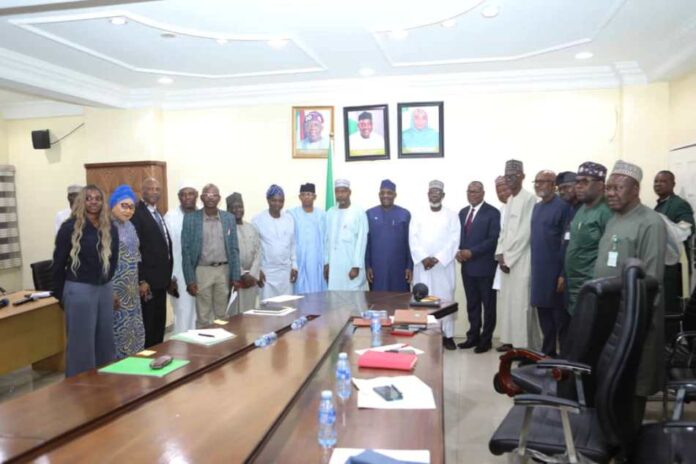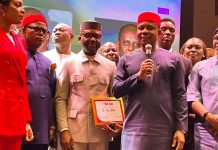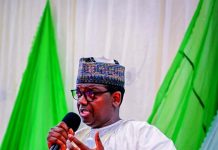The Honourable Minister of Education, Dr. Maruf Olatunji Alausa CON, has unveiled a comprehensive plan to integrate sports into Nigeria’s education system, declaring, “Sports is Education, Education is Sports.” Speaking at the inauguration of a 20-member National Sports-Education Review Committee in Abuja, he emphasised nurturing talent from grassroots to elite levels, as seen in countries like Brazil and Argentina.
He lamented that while over 16 million youths engage in sports-related betting, Nigeria lacks a thriving sports economy. The collapse of the local league and outdated, overly theoretical sports curricula in many tertiary institutions, he said, must be addressed.
To drive reform, Dr. Alausa announced a Sports Development Fund to support athletes and standardise sports infrastructure and curricula across all education tiers in line with global best practices. The committee will review all accredited Physical and Health Education, Sports, and Sports Science programmes under the NUC, NBTE, NCCE, and NERDC, focusing on course content, teaching methods, learning outcomes, and introducing new, globally relevant courses. It will also explore interdisciplinary linkages with fields such as medicine and business administration and deliver actionable recommendations within six weeks.
As part of the initiative, Sports Centres of Excellence will be established in the six geopolitical zones: University of Nigeria, Nsukka; University of Benin; University of Ibadan; University of Jos; Ahmadu Bello University, Zaria; and Muhammadu Buhari University, Maiduguri. Additional centres will be located at the Federal Polytechnic, Offa (Kwara State) and Federal College of Education, Okene (Kogi State). The National Sports Commission has earmarked ₦3.5 million per centre in the 2025 budget.
Director of Polytechnic Education, Mr. Usman Ejeh, described the move as a perfect fit for President Bola Ahmed Tinubu’s Renewed Hope Agenda, saying improved infrastructure and practical curricula will produce educators capable of mentoring the next generation of sports leaders.
Vice Chancellor of Ahmadu Bello University, Professor Adamu Ahmad, hailed the initiative as a “beacon of hope” for Nigerian sports and pledged full institutional support, predicting it will revive sporting glory and boost interdisciplinary research.
Provost of the Federal College of Education, Okene, Dr. Ibrahim Ismaila Mosimabale, noted sports curricula have remained unchanged for too long and pledged readiness to help design industry-relevant programmes.
Executive Secretary of the NUC, Professor Abdullahi Yusufu Ribadu, praised the Minister’s “visionary” leadership, saying the reforms will standardise sports education and make it a respected career path.
Sports expert Dr. Kweku Tandoh urged the committee to create adaptable, forward-looking curricula and collaborate with the National Institute for Sports, which is reviewing its own programmes.
Special Assistant on Digital Communication and E-Learning, Mojoyin Adebajo, called for replacing outdated, theory-heavy teaching with integrated, practical training, reminding that “when we invest in sports education, we invest in national health, unity, and prosperity.”
Stakeholders, including vice-chancellors, education administrators, and sports experts, unanimously endorsed the reform, calling it timely and pivotal for building a sports-based economy that produces world-class athletes and strengthens both the education and economic systems.
The Federal Ministry of Education reaffirmed its commitment to sustained funding, strong partnerships, and continuous reforms so students graduate not only academically sound but also physically fit, globally competitive, and ready to excel in the fast-changing world of sports.
Signed
Folasade Boriwo
Director, Press and Public Relations






